The arrest of Istanbul’s popular opposition mayor, Ekrem İmamoğlu, has sparked a wave of mass mobilisations not only across Turkey but also in major cities around the world. Begum Zorlu reflects from a solidarity protest in London, arguing that the demonstrations reflect the “spirit of Gezi,” uniting people across political divides and generations.
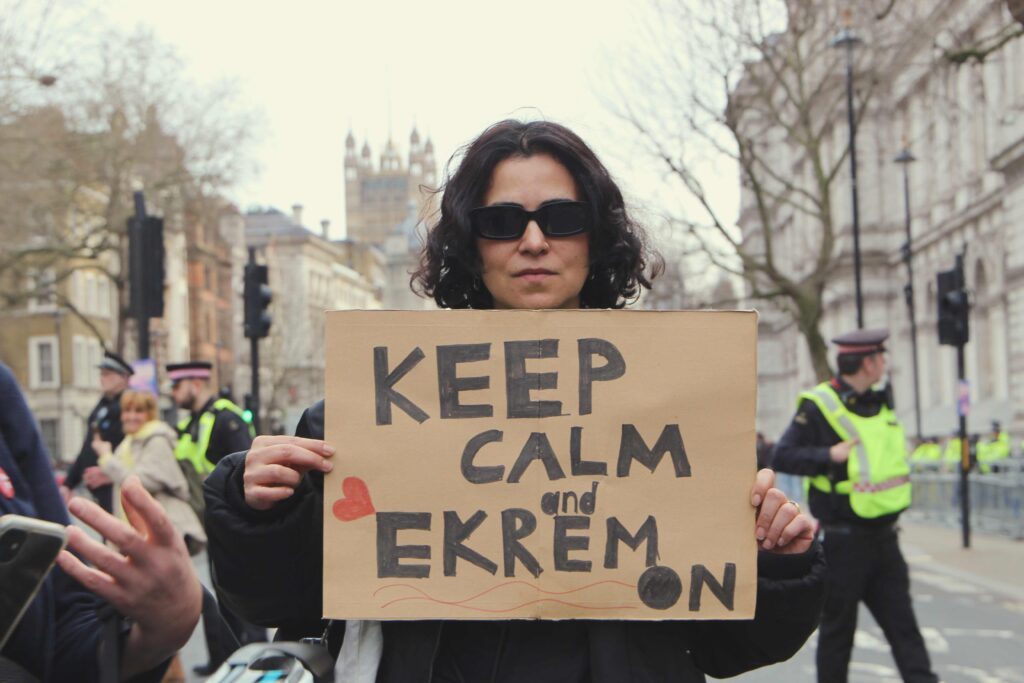
After the arrest of Istanbul’s charismatic opposition mayor, Ekrem Imamoglu, Turkey has encountered escalating unrest*. Significant protests have arisen in cities such as Istanbul, Ankara, and İzmir, where thousands have gathered in public spaces to show solidarity and oppose a growing authoritarian regime. These demonstrators have encountered police violence and arrests, while the government has imposed multiple restrictions on social media and largely ignored the protests in state-controlled media. Over 1,000 protesters, as well as journalists and writers, have been arrested.
While repression grew in Turkey, the mobilisation has gained international momentum, leading to major protests in Western cities such as Berlin, Brussels, London, New York, and Amsterdam. I attended the demonstration in London this saturday, where over a thousand people gathered in Trafalgar Square and later marched towards Parliament Square.
A range of organised leftist groups, Kurdish and Alevi organisations, stood alongside students and independent participants to express their solidarity. A symbolic primary election ballot box was also set up in the square, allowing attendees to cast their votes for Ekrem İmamoğlu as the CHP’s (Republican People’s Party) presidential candidate.
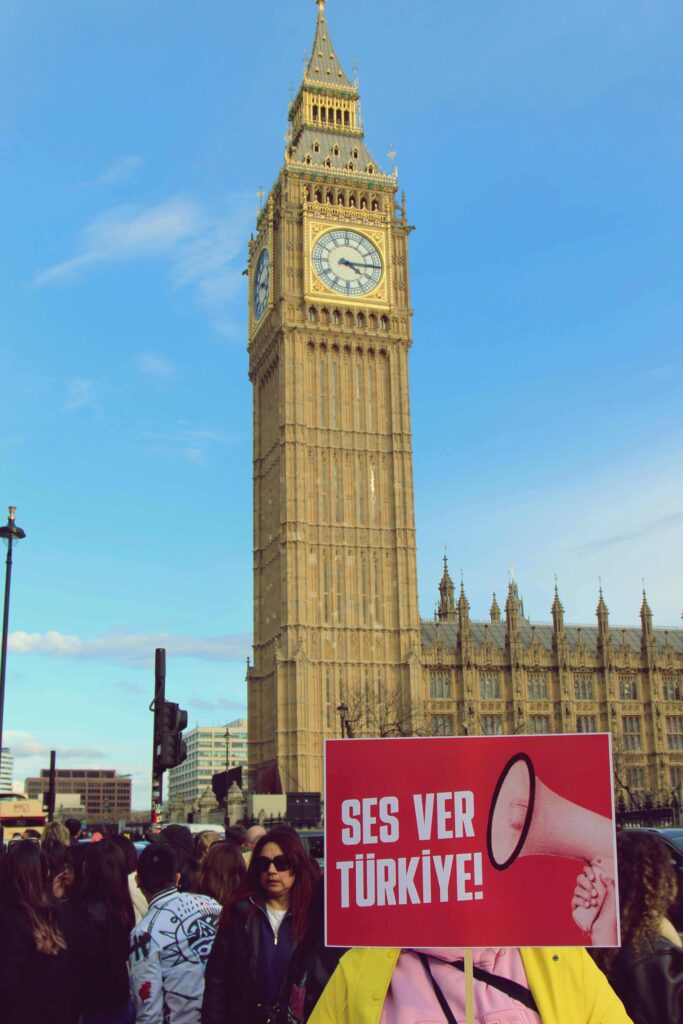
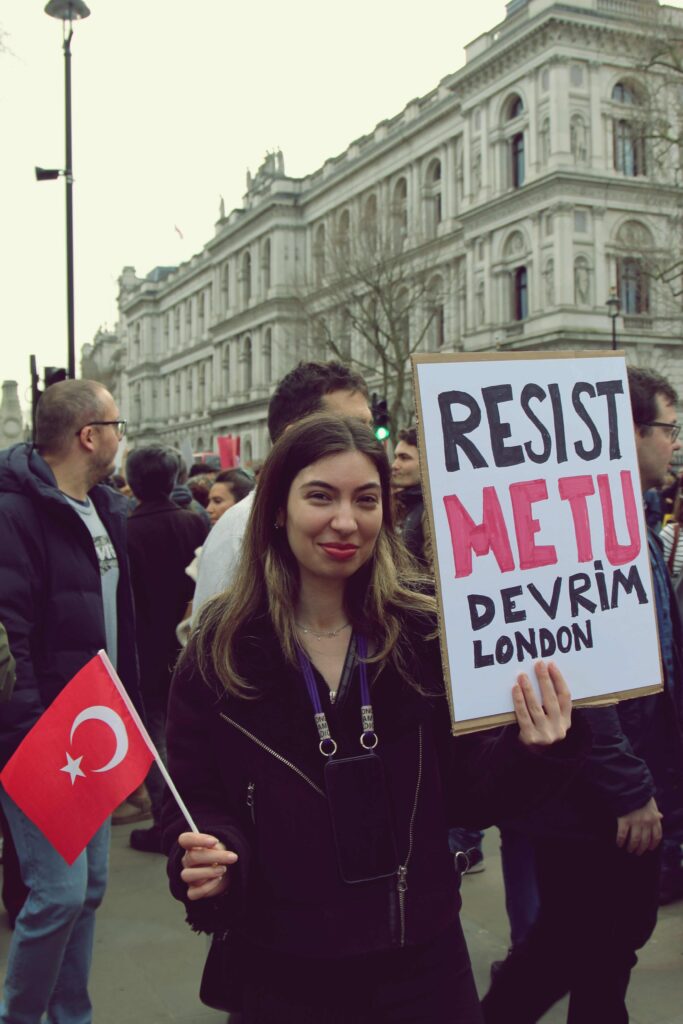
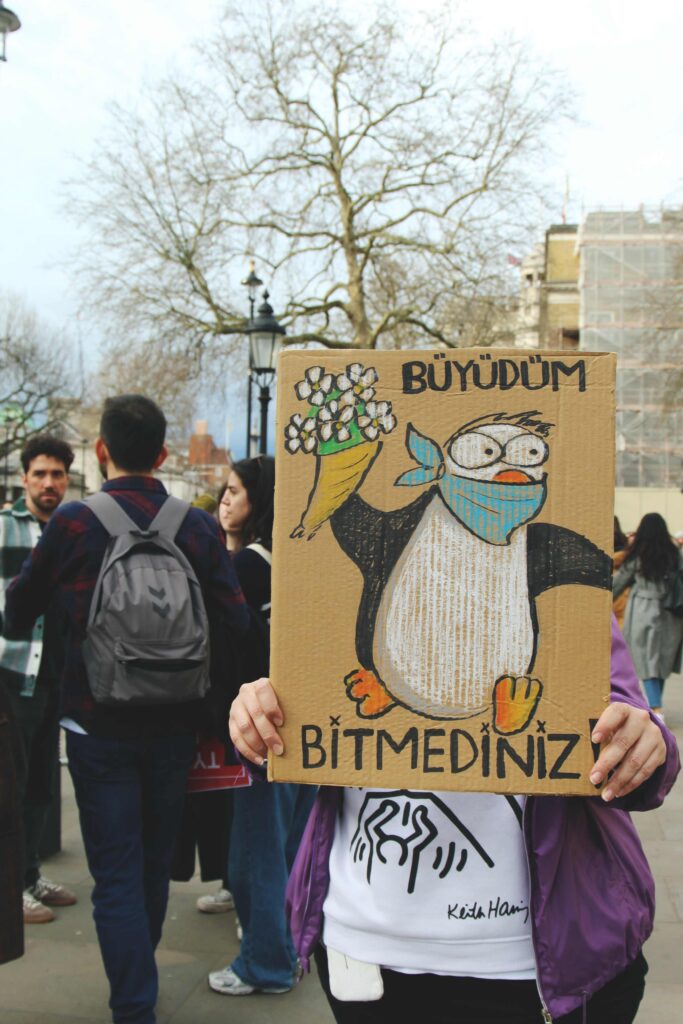
Photos: Begum Zorlu from London
What stood out in this mobilisation was its deliberate evocation of the slogans and spirit of the Gezi Park Protests. Protesters made repeated references to the 2013 demonstrations, which began as a defence of a public park in central Istanbul but quickly evolved into a mass uprising against police brutality and the increasingly authoritarian direction of the AKP government. Twelve years on, Turkey has regressed even further, with the state consolidating control over key institutions, facilitating increased repression of popular opposition figures.
As democratic backsliding in Turkey deepened, maintaining protest movements that brought together diverse political groups became increasingly challenging—especially as the Kurdish opposition had been heavily criminalised, and the mainstream opposition often hesitated to publicly associate with them. In this context, the unity of multiple groups evoked strong parallels with the Gezi Movement, when a broad coalition of social actors was able to unite around shared demands.
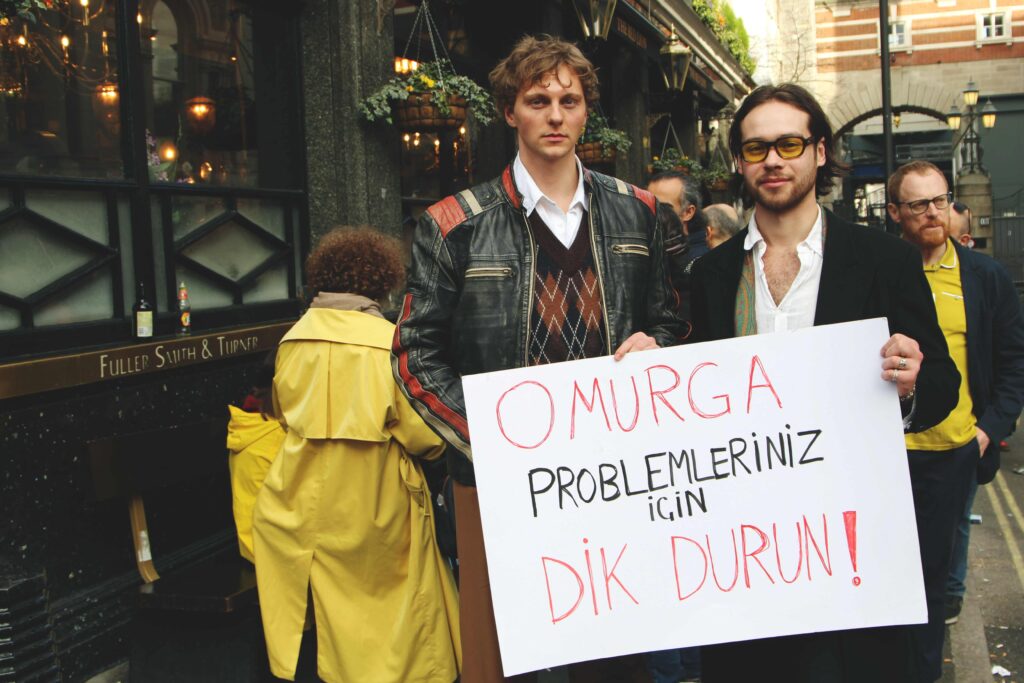
At the protests in London, there was a strong presence of students and young people. Many remarked that they had been “too young” to take part in the Gezi movement, having grown up under the only political reality they’ve ever known, the current regime. Slogans such as “this is just the beginning, the struggle will continue,” which had become emblematic during Gezi, were once again at the heart of the gathering.
The the memory of that earlier social movement was strongly felt in the square, shaping the atmosphere and lending historical dynamism to the protest. It provided a broader framework through which to interpret the attempted criminalisation of Ekrem İmamoğlu as part of a wider struggle for justice, democracy, and resistance in Turkey. It also highlighted the need for diverse opposition groups to unite against authoritarianism.
*It is important to underline that just a day before the arrest, Istanbul University annulled the diploma of İmamoğlu, effectively blocking his presidential nomination. In Turkey, to be a presidential candidate, a university degree is needed.

